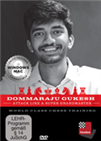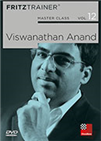Suspicions, Statistics and Standoffs
By Nate Solon

"If I speak, I am in big trouble." Those were the words of foot-ball manager Jose Mourinho after his team lost a match where he was critical of the referee’s performance. When Magnus Carlsen attached a video of Mourinho to the end of a terse tweet announcing his withdrawal from the Sinquefield Cup after losing a game against Hans Niemann, chess fans were quick to read between the lines: Carlsen believed Niemann had cheated to win the game.
The situation was unusual for several reasons. Carlsen rarely loses, let alone with the white pieces, let alone against someone like Niemann – at the time a promising grandmaster, but not considered one of the world’s elite. Additionally, withdrawing from a closed tournament is a rare step, as it essentially ruins the event for the organizers. Finally, it was a rare case of cheating suspicion spilling over into public view.
Cheating suspicions had been simmering for a long time among top grandmasters, but they were rarely vented publicly. Once Carlsen went public, they spread like wildfire. No one seemed to know exactly how Niemann could have cheated, but GM Eric Hansen suggested offhandedly in a stream that he could have received information from signals sent via a vibrating sex toy. The suggestion was picked up and amplified by Elon Musk, the world’s richest man and newfound owner of Twitter (now X). From there it spread to TV talk shows and even became a plot in an episode of the popular TV comedy It’s Always Sunny in Philadelphia.
A few days after the game against Carlsen, Niemann admitted in a post-game interview that he had previously cheated online, but several years before at the age of 16, and never in over-the-board games. Several weeks later Chess.com fired back with a report claiming Niemann’s online cheating was more extensive than he had admitted. It also examined his over-the-board history, but concluded there was not adequate evidence for over-the-board cheating.
Since then, Niemann has filed a law-suit against Carlsen and Chess.com for damaging his reputation, FIDE released their own report, and the scandal has died down and flared up again in various forms. Yet more than a year later, the extent of the cheating – online and offline, by Niemann and others – is far from clear.
100% effective
One of the problems with cheating in chess, as compared to other sports, is that it’s 100% effective. I cannot beat Lebron James at basketball no matter how many steroids I take, but even a mediocre player can beat Magnus Carlsen with the help of an engine. In online chess, engine cheating is dismayingly easy to pull off. All you need is access to the engine – on a phone, in an app, a different window, anywhere. Of course, if you play the engine’s top choice every single move, you will soon be caught, but there are more subtle ways to go about it. Sites like Chess.com say they can catch these too, but a lot of top grandmasters don’t believe them.
Statistical evidence
 In this Fritztrainer: “Attack like a Super GM” with Gukesh we touch upon all aspects of his play, with special emphasis on how you can become a better attacking player.
In this Fritztrainer: “Attack like a Super GM” with Gukesh we touch upon all aspects of his play, with special emphasis on how you can become a better attacking player.Cheating over the board is more difficult, as you have to get access to the engine without being observed. GM Alex Colovic, a member of the FIDE Ethics Committee, told me there are basically two ways to go about this: alone or with an accomplice. In one of the most famous cases, then-GM Igors Rausis (he has since had the GM titled revoked) was caught looking at his phone in a bathroom stall. In another case, a player had a device inserted into their shoe, through which they received signals from an accomplice.
This type of physical evidence is highly conclusive, but it’s not always possible to catch someone red-handed. In that case, statistics come into play. Statistical evidence involves identifying patterns in someone’s play that would be impossible, or at least very unlikely, without computer assistance. But just how unlikely something has to be before it constitutes proof of cheating is a sticky subject. For that reason, Colovic says that it’s very difficult to take action based on statistics alone.
Given the difficulty of catching someone after the fact, the ideal solution is to prevent cheating in the first place. Colovic described his work as a Fair Play Officer as something like planning an event for a major political figure: the safety of the venue has to be determined and possible avenues of attack cut off. That could mean, for instance, ensuring the bathroom is only accessible by a single cordoned pathway.
Colovic estimated the chances of cheating at a big, high profile tournament like the upcoming Candidates to be very low. Such events have few players, a very high level of scrutiny, and the budget to implement strong safety measures. The bigger concern is open tournaments where there are far more players to keep track of, and organizers may not have the funds to adequately address anti-cheating.
 Igors Rausis was caught cheating at a tournament in Strasbourg in 2019. He confessed to cheating on four different occasions, three times by using his mobile phone and the other time by prearranging the result of a game.
Igors Rausis was caught cheating at a tournament in Strasbourg in 2019. He confessed to cheating on four different occasions, three times by using his mobile phone and the other time by prearranging the result of a game.
Another scandal arose at an open tournament in Qatar, when Magnus Carlsen lost to relatively unknown GM Alisher Suleymenov. In an echo of his response to losing to Niemann at the Sinquefield Cup, Carlsen vented his frustration on Twitter, saying, ‘as soon as I saw my opponent was wearing a watch early in the game, I lost my ability to concentrate.’ Carlsen later clarified that he was not accusing Suleymenov of cheating, just expressing his frustration with the lack of anti-cheating measures at the tournament.
In this case, Carlsen appears to have fallen victim to an effect that is relevant for players of all levels: cheating suspicion can be just as damaging as cheating itself. If you believe your opponent is cheating, you believe their moves are unbeatable, and in most cases this is a self-fulfilling prophecy.
My Experience Beating Hikaru Nakamura and a Video Screening
 This DVD allows you to learn from the example of one of the best players in the history of chess and from the explanations of the authors how to successfully organise your games strategically, and how to keep your opponent permanently under pressure.
This DVD allows you to learn from the example of one of the best players in the history of chess and from the explanations of the authors how to successfully organise your games strategically, and how to keep your opponent permanently under pressure.As a FIDE Master I am eligible to play in Titled Tuesday. Of course, I have little to no chance of finishing in the prizes, but if I win a few games I sometimes get the chance to go up against one of the best players in the world.
In a Titled Tuesday in early 2023, I faced Hikaru Nakamura in Round 2. The game seemed headed for a predictable loss as I was getting pressured on the board and the clock, but then he made a few careless moves, exposing his bishop and weakening his king. Suddenly I had a huge advantage. Sensing a golden opportunity, I pushed myself to focus, and managed to convert the win.
A few rounds later, I got a message from Chess.com staff that I had been selected for video screening. I joined a Zoom call where I had to share my screen and show a 360° view of my surroundings. Somewhat rattled, I played poorly in the rest of the tournament and finished in the middle of the pack. Hikaru came back to win with 9½/11.
The next Tuesday I got paired against Vladimir Kramnik. This was before he launched his anti-cheating crusade, but he was still a former World Champion. I briefly entertained visions of beating Nakamura and Kramnik in back-to-back tournaments, but it wasn’t to be. This time I lost without much of a fight. With the benefit of hindsight, maybe that’s for the best.
Some quotes from the article:
- Chess.com CEO Erik Allebest calls cheating a ‘medium problem that is a big PR problem’
- The idea is to catch players who play too well, but it is a thin line between very well and too well
- Carlsen appears to have fallen victim to the damaging effect of cheating suspicion itself
- Kramnik seems to share statistics ad hoc, as they come to his attention
- Kramnik promised that he would resign immediately the next time he was paired against Martinez
If you wish to read the whole of this extensive and highly informative (11-page) article on cheating, you will have to order the Edition 2024/2 of New in Chess.

History of Cheating
 |
A history of cheating in chess (1)
29.09.2011 – Hardly a month goes by without some report of cheating in international chess tournaments. The problem has become acute, but it is not new. In 2001 Frederic Friedel contributed a paper to the book "Advances in Computer Chess 9". It traces the many forms of illicit manipulations in chess and, a decade later, appears disconcertingly topical and up-to-date. We reproduce the paper in five parts. |
 |
A history of cheating in chess (2)
04.10.2011 – Coaching players during the game is probably the most widespread form of cheating (rivaled only perhaps by bribery and the throwing of games). Although this practice began long before the advent of chess playing machines, computers have added a new and dramatic dimension to this method of cheating in chess. You will never guess: who were the pioneers of cheating with computers? |
 |
A history of cheating in chess (3)
18.12.2011 – In January 1999 the main topic of conversation amongst top players like Kasparov, Anand and others: who was the mysterious German chess amateur, rated below 2000, who had won a strong Open ahead of GMs and IMs, with wonderfully courageous attacking chess and a 2630 performance? How had he done it? Turns out it was with unconventional methods, as subsequent investigation uncovered. |
 |
A history of cheating in chess (4)
28.2.2012– Las Palmas 1996: Garry Kasparov is agonizing over his 20th move against Vishy Anand. He calculates and calculates but cannot make a very tempting pawn push work. Immediately after the game he discovers, from his helpers, that it would have won the ultimately drawn position. The point that became clear to him: a single bit of information, given at the top level in chess, can decide a game. |
 |
A history of cheating in chess (5)
10/6/2014 – A few weeks ago FIDE took first executive steps to combat the most serious threat that the game of chess currently faces: the secret use of computer assistance during the game. In a paper written fourteen years ago Frederic Friedel had first drawn attention to the dangers that are lurking. We re-published this historical document in four parts. Here is the fifth and final section. |
























